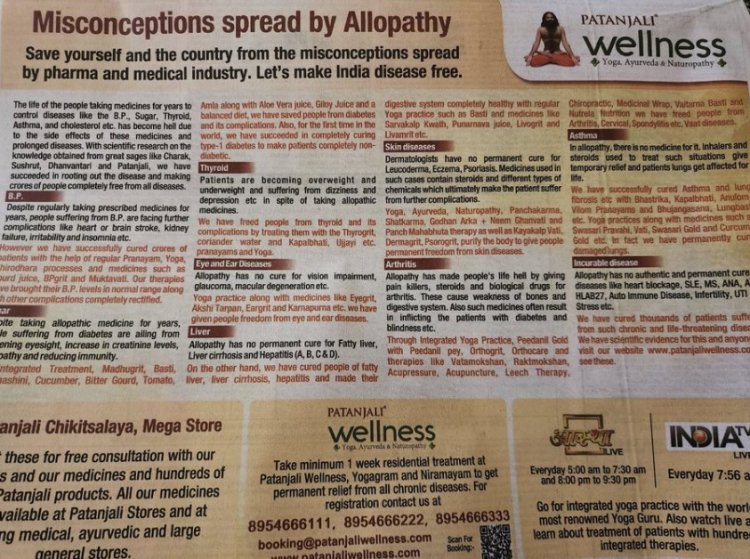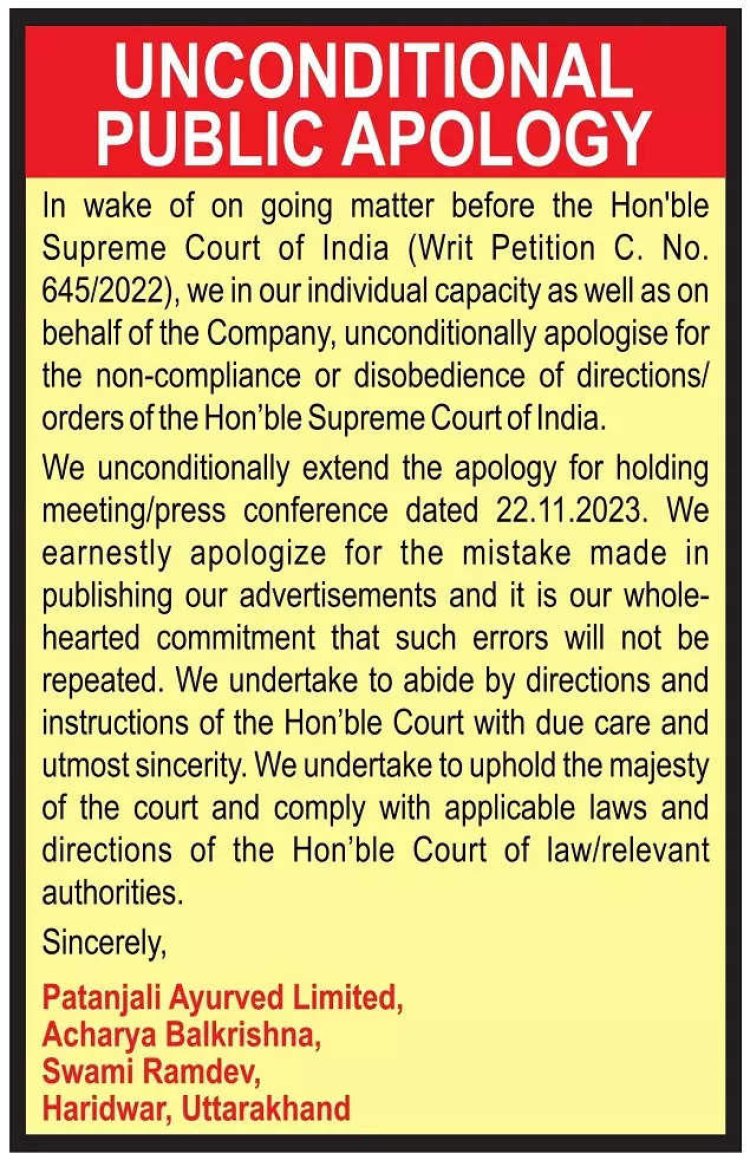The Patanjali Controversy: Misleading Ads and Legal Battles
The Supreme Court of India has criticized Patanjali Ayurved for publishing ads that allegedly made false claims about the efficacy of their products and criticized allopathic medicine

The Rise and Fall of Patanjali's Reputation
Patanjali, the Indian consumer goods company, has recently become embroiled in a significant controversy due to its misleading advertisements, resulting in strict action being taken by the Supreme Court. This incident serves as a reminder of the crucial role transparency and accountability play in the consumer market, as well as the potential consequences that can arise from making unsupported assertions.
The matter initially came to public attention in August 2022 when the Indian Medical Council filed a petition against Patanjali, accusing the company of deceiving the public through its advertisements. Specifically, these advertisements claimed that allopathic medicines and the medical industry were disseminating false information, while Patanjali possessed the genuine solutions for various health ailments, including high blood pressure, diabetes, and thyroid problems.
Patanjali's advertisements boasted about the effectiveness of their products, such as the "BP Care" and "Sugar Care" tablets, in liberating thousands of individuals from these conditions. However, the Supreme Court determined that these claims were entirely misleading, emphasizing that Patanjali could not guarantee the cure of these diseases.

Patanjali's Continued Defiance and the Supreme Court's Crackdown
In spite of the initial warning and fine imposed by the Supreme Court of ₹10 crore, Patanjali persisted in airing deceptive advertisements. This defiance escalated the situation, resulting in the court holding Patanjali in contempt for openly flouting its directives.
The Supreme Court proceeded to take stricter measures by prohibiting all of Patanjali's advertisements and instructing the company to pay an additional penalty of ₹10 crore. Furthermore, the court mandated the Uttarakhand government to cancel the manufacturing licenses of 14 Patanjali products, which included popular items such as "Divya Drishti" eye drops and "BP Care" tablets.
The court summoned Patanjali's leadership, headed by Acharya Balkrishna and Baba Ramdev, to apologize for the misleading advertisements. It was emphasized by the court that Patanjali had deceived numerous individuals through false claims regarding the effectiveness of its products.
The Impact on Patanjali's Finances and Reputation
The financial performance and public perception of Patanjali have been significantly impacted by the legal issues and negative publicity surrounding the company. Over the past few months, Patanjali's share price has seen a sharp decline, falling from approximately ₹30 per share to just ₹20 within the last 45 days.
Furthermore, the Uttarakhand government has taken legal action by filing a criminal complaint against Patanjali Ayurved and its subsidiary, Divya Pharmacy, under various sections of the Drugs and Magic Remedies Act. Additionally, the Goods and Services Tax (GST) department has also initiated actions against the company.
These recent events have not only damaged Patanjali's reputation but have also cast doubts on the company's ability to achieve its ambitious growth objectives, including the planned listing of four of its subsidiaries in the upcoming years.
Lessons for the Consumer Goods Industry
The Patanjali controversy stands as a stark reminder for the consumer goods sector, emphasizing the significance of integrity and openness in advertising. Businesses that promote their products with unverified assertions not only face legal repercussions but also jeopardize their credibility and market standing.
Moreover, this event highlights the necessity for stricter regulatory supervision and implementation to safeguard consumers against deceptive marketing tactics. With the expansion of the Indian consumer market, it is imperative for companies in this industry to uphold the utmost ethical standards and responsible promotional strategies.
Consumers should take this incident as a cue to exercise caution and discernment when assessing product claims, particularly in the realms of healthcare and wellness. Relying on reputable sources for accurate information and making well-informed choices about their purchases is essential.

Conclusion
The Patanjali controversy serves as a valuable lesson for both businesses and consumers. It highlights the severe repercussions that can arise when profit is prioritized at the expense of transparency and consumer welfare. As the Indian consumer market undergoes constant changes, it is imperative for all industry participants to adhere to the utmost ethical and responsible practices. By doing so, they can safeguard the trust and well-being of consumers, making it their foremost concern.

 Editor
Editor 





























